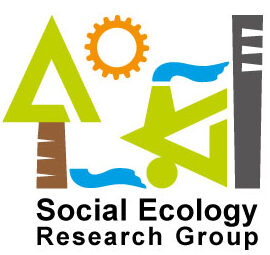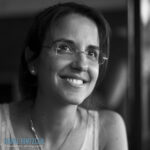Short biography
Merav Cohen is a doctoral candidate at the Technion’s Faculty of Architecture and Town Planning, where she studies the interface between human society and its environment. In particular, she investigates what characteristics prepared some communities for the Covid-19 pandemic better than others. Her research explores resilience, or a society’s capacity to endure external shocks/stress like pandemics or climate change, through the lens of ‘social ecology’, a discipline that studies the interconnections between society and its natural environment, viewing them as a single, holistic system.
Merav began her professional career in Tel Aviv as a lawyer in the field of energy and infrastructure. In 2013 she moved to Beijing where she worked on a collaborative project between the European Union and the Chinese government to promote environmental governance. At the end of the project, she moved to New York where she managed a program to promote sustainable practices among communities across the US.
Merev returned to Israel in 2020 and commenced her PhD studies at the height of the Covid-19 Pandemic. After completing a prerequisite exploratory research Merav submitted her doctoral proposal and passed her PhD candidacy exam in July 2022.
Merev holds a master’s degree in Environmental Science and Policy (MPA) from Columbia University in New York, and a bachelor’s degree in law (LLB) from the Hebrew University of Jerusalem.
Title of thesis/dissertation
What makes a socio-ecological system more resilient? – Insights from Covid-19
What makes a socio-ecological system more resilient? – Insights from Covid-19
Resilience of social-ecological systems is defined as their capacity to endure shocks and stressors without losing defining, desirable, functionalities. The complex, global impacts of Covid-19, resulting from interactions between the social and biophysical world, provide a rare opportunity to explore how such interactions affect systemic resilience to major disturbances. This study investigates attributes at this human-environmental intersection that have been associated with increased societal resilience. Our multi-phase approach includes literature reviews, synthesis, content analysis, stakeholder interviews, and the development of fuzzy cognitive maps. We identify and analyze key pandemic impacts, factors of resilience, and relationships between them. Findings, focusing on a case study from Taiwan, provide valuable insights for policymakers and researchers seeking to enhance societal resilience in the face of future crises.
מאפייני חוסן במערכות סוציו-אקולוגיות: מה ניתן ללמוד ממגפת הקורונה?
חוסן מערכות סוציו-אקולוגיות מוגדר כיכולת לסבול זעזועים מיידיים ולחצים מתמשכים מבלי לאבד את הפונקציונליות הרצויה המגדירה מערכות אלו. ההשפעות המורכבות והגלובליות של מגיפת הקורונה, הנובעות מאינטראקציות בין העולם החברתי והביופיזי, מספקות הזדמנות נדירה לחקור כיצד אינטראקציות כאלה משפיעות על החוסן המערכתי בפני הפרעות משמעותיות שכאלה. מחקר זה חוקר תכונות בצומת האנושית-סביבתית הזו, אשר נמצאו קשורים להגברת החוסן החברתי. הגישה הרב-שלבית שלנו כוללת סקירות ספרות, סינתזה, ניתוח תוכן, ראיונות עם בעלי עניין תוך בניית דיאגרמות משוב סיבתי (Causal Loop Diagram), ופיתוח מפה קוגניטיבית מטושטשת (Fuzzy Cognitive Map). זיהינו וניתחנו השפעות עיקריות של המגיפה, גורמי חוסן, ואת היחסים ביניהם. הממצאים, המתמקדים בחקר מקרה בטייוואן, מספקים תובנות חשובות לקובעי מדיניות וחוקרים המבקשים לשפר את החוסן החברתי מול משברים עתידיים.
Research interests
Socio-ecological resilience, ecological-economics, environmental law and policy, socio-ecological research methods, long-term socio-ecological research infrastructure and standard observations.
Other interests
Doughnut Economics (co-founder of Israel Doughnut Economics Community), animal welfare, Chinese language, Israeli folk dancing
Links to relevant work/projects/articles/presentations
Presentation/resource contribution: Using Causal Loop Diagrams and Fuzzy Cognitive Mapping in Participatory Processes
Using Causal Loop Diagrams and Fuzzy Cognitive Mapping in Participatory Processes
Presentation: Examining resilience theory in Long Term Socio-Ecological Research (LTSER) platforms
Chair: Long Term Socio-Ecological Research (LTSER) session at PECS3 conference, August 2024
Doughnut Economics launches in Israel with call to update priorities, protect Earth


